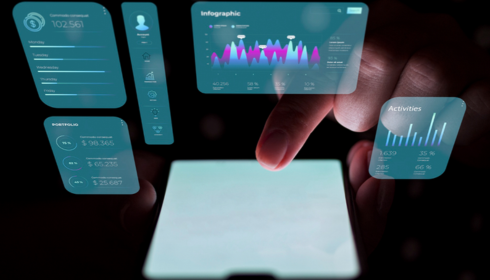Most businesses turn to digital agencies for execution: build a website, run a campaign, design a brand. But in a landscape that changes as fast as today’s does, the role of an agency is no longer just to produce—it’s to anticipate, evolve, and guide.
From generative AI and privacy-first analytics to design accessibility and real-time personalization, agencies are now navigating not just client needs, but also platform shifts, consumer behavior changes, and regulatory pressure.
The agencies that thrive through these shifts are the ones that treat digital strategy as a moving target—and build systems that can move with it.
Adaptability Is the New Expertise
The shelf life of a digital tactic is shrinking. What worked in 2021 (think keyword stuffing or single-channel ad budgets) is ineffective today. And what works today—AI chat funnels, Core Web Vitals optimization, first-party data marketing—may look entirely different in two years.
That’s why modern agencies can’t just offer a menu of services. They need a framework for adaptation.
Agencies like https://zen.agency understand that long-term partnerships aren’t based on static solutions. They’re built on agility. Their work spans web development, branding, marketing strategy, and UX—but more importantly, it connects all those disciplines into a system that evolves with the client’s goals and the market’s demands.
From Projects to Platforms
More companies today are moving from one-off projects to long-term digital platforms—ecosystems of interconnected tools, data pipelines, and audience engagement strategies.
The agency role shifts in that context. It’s not about delivering a website—it’s about building a growth engine. That might mean integrating WooCommerce with inventory systems, shaping a full-funnel content strategy, or automating email workflows across products and services.
And none of that happens without technical fluency, process clarity, and creative discipline—all of which come from cross-functional teams working as a single strategic unit.
UX Is Now a Revenue Strategy
User experience used to be treated as a design choice. But with more data connecting UX decisions to conversion rates, bounce rates, customer retention, and ad performance, it’s become a revenue function.
Agencies working in 2025 and beyond can no longer afford to treat UX as surface-level. They need to bake it into the planning phase, test it rigorously, and back it with research from trusted sources (like Baymard Institute, for instance).
This is where agency-client alignment becomes critical. Clients may come in asking for a visual upgrade—but the right agency reframes that request into a data-informed UX improvement, tied to real business KPIs.
The Future Is Full-Service by Necessity
Today’s digital infrastructure isn’t just more complex—it’s more connected. SEO affects paid ads. Page speed affects conversions. Email performance depends on UX and data privacy. Agencies can no longer operate in silos.
That’s why businesses are moving back toward full-service digital partners that can unify these pieces and spot opportunities across disciplines.
The value in working with an agency like https://zen.agency isn’t just access to a service—it’s access to a system. One that’s designed not just to perform, but to evolve.
Final Thought: Choose an Agency That’s Thinking Ahead
As digital continues to shift, the real question businesses need to ask isn’t “what can this agency do today?” but “how will they help me adapt tomorrow?”
Execution is expected. What sets a great agency apart is their ability to evolve alongside you—with technical depth, strategic foresight, and creative agility.

